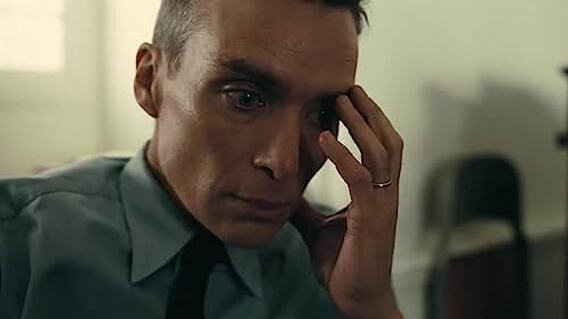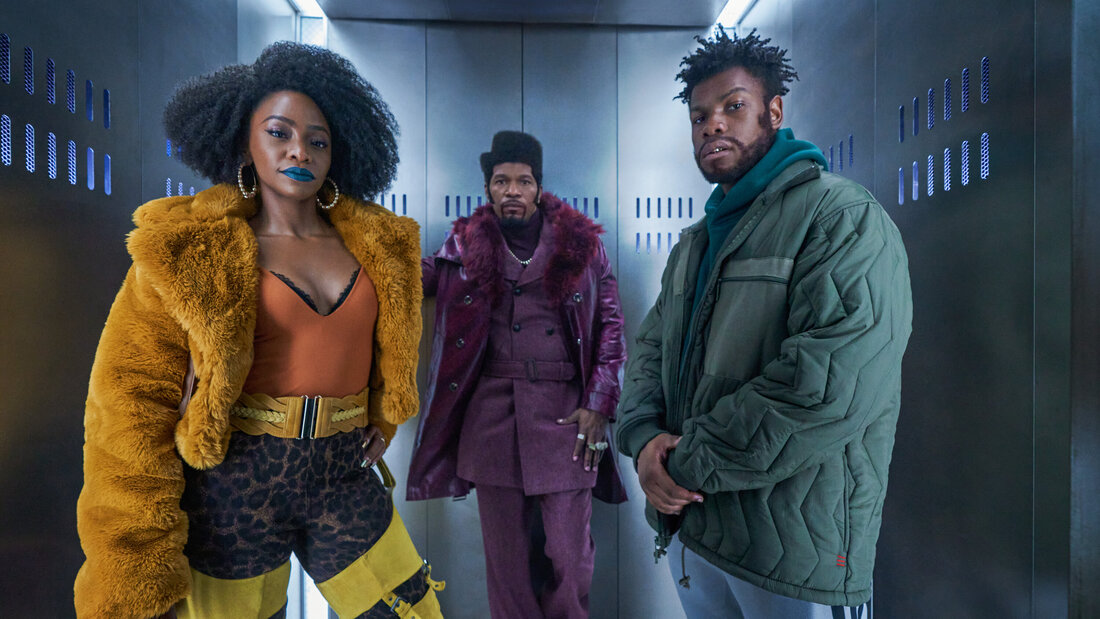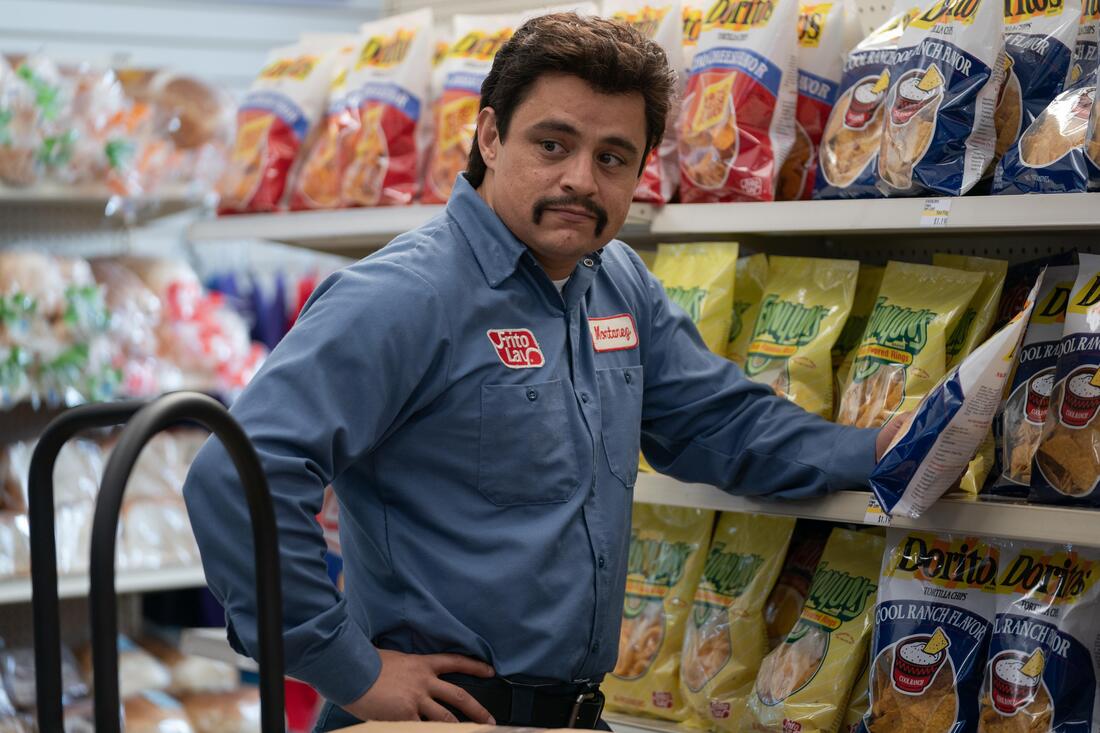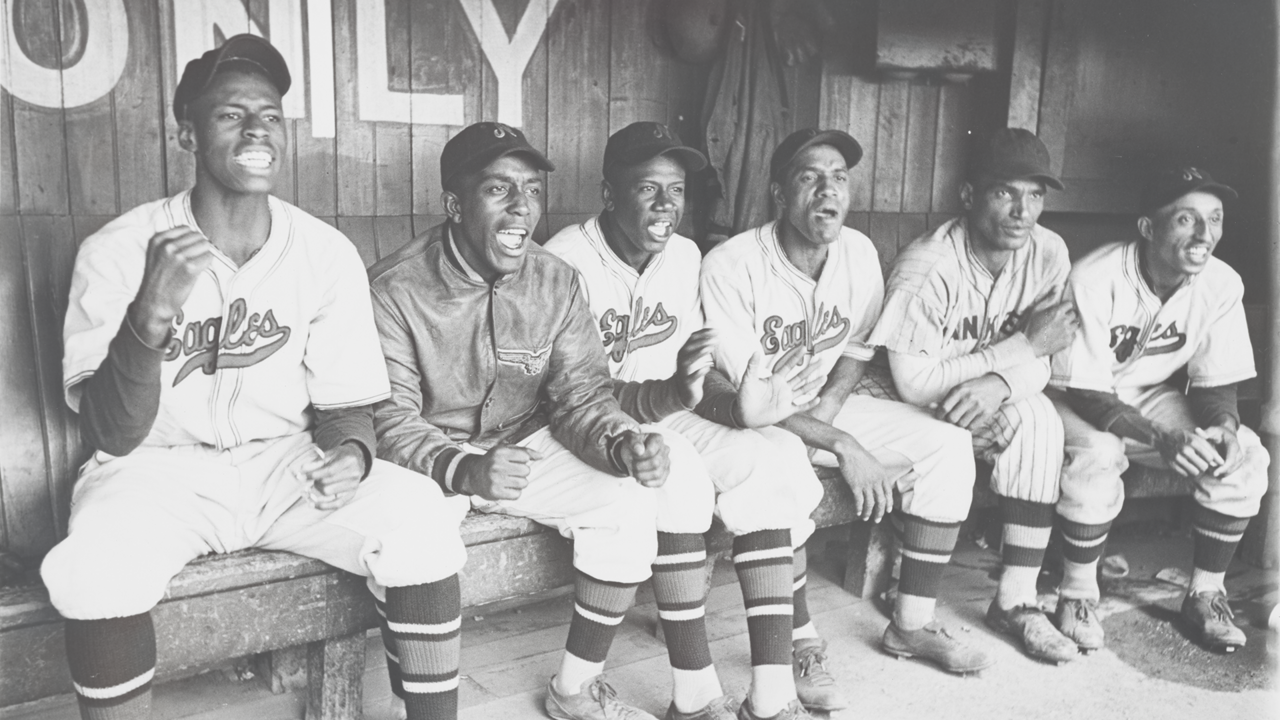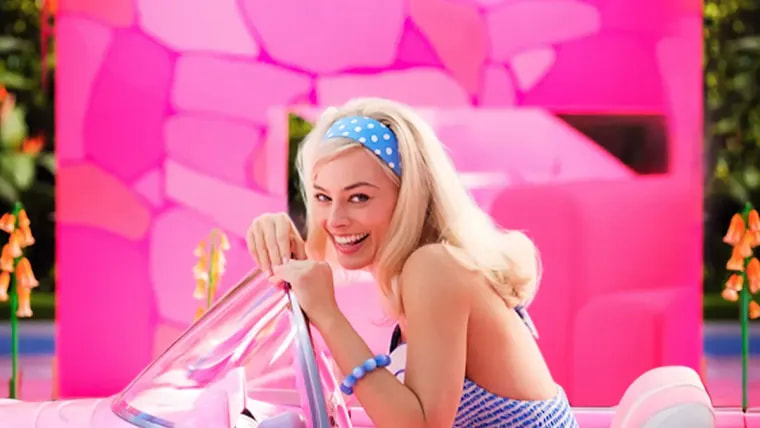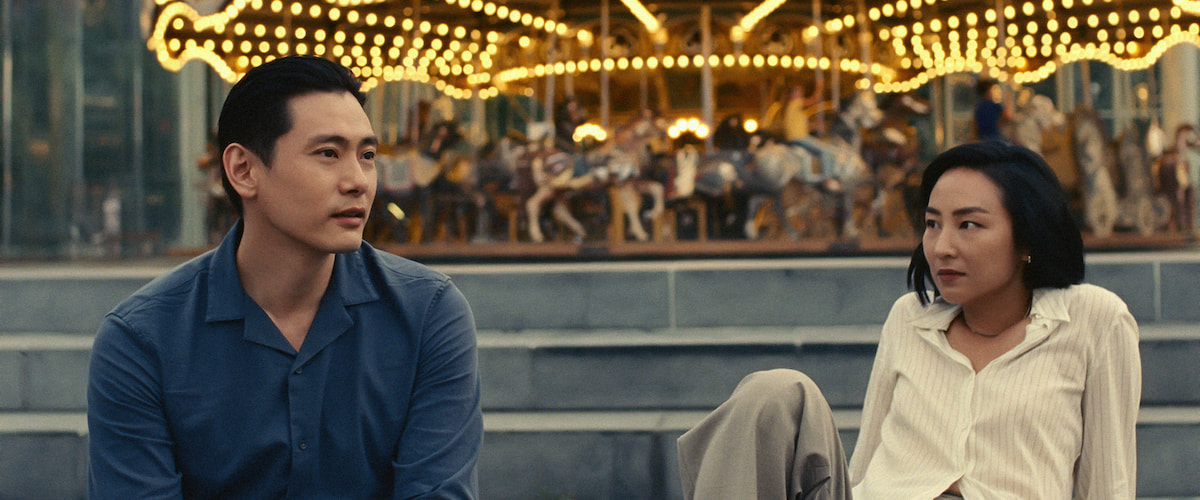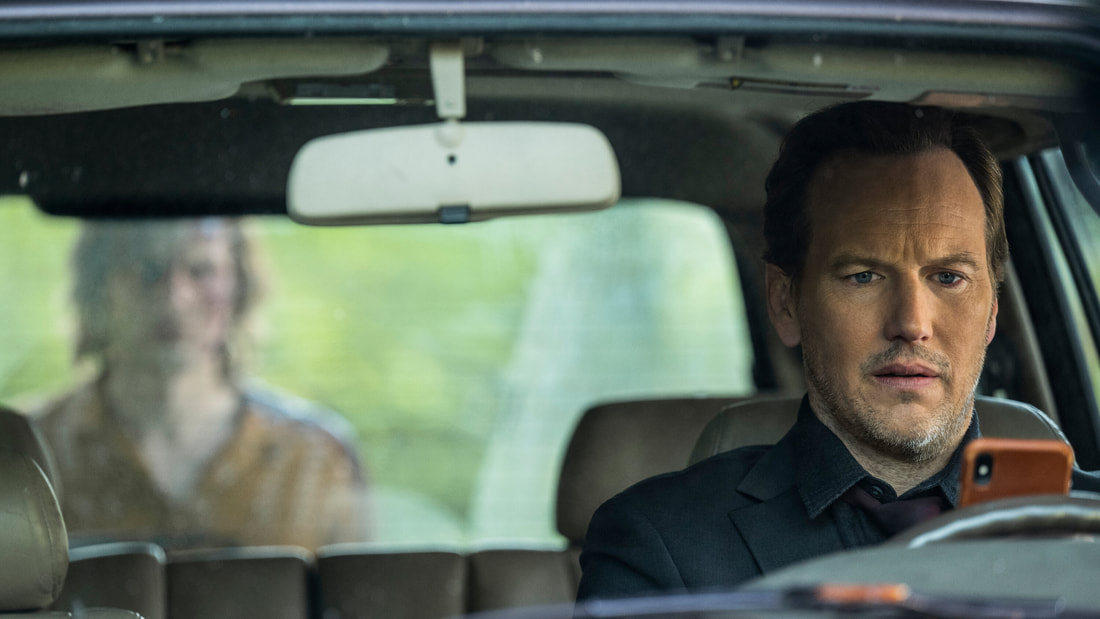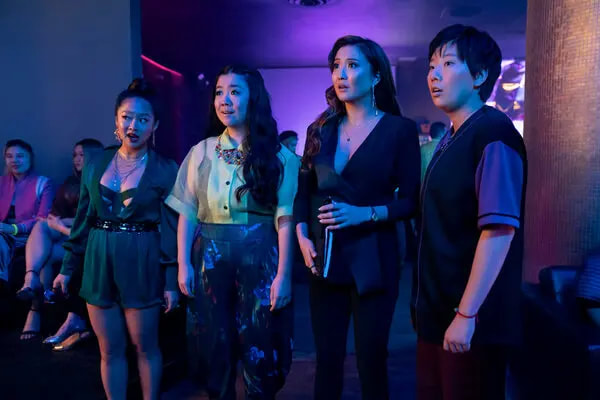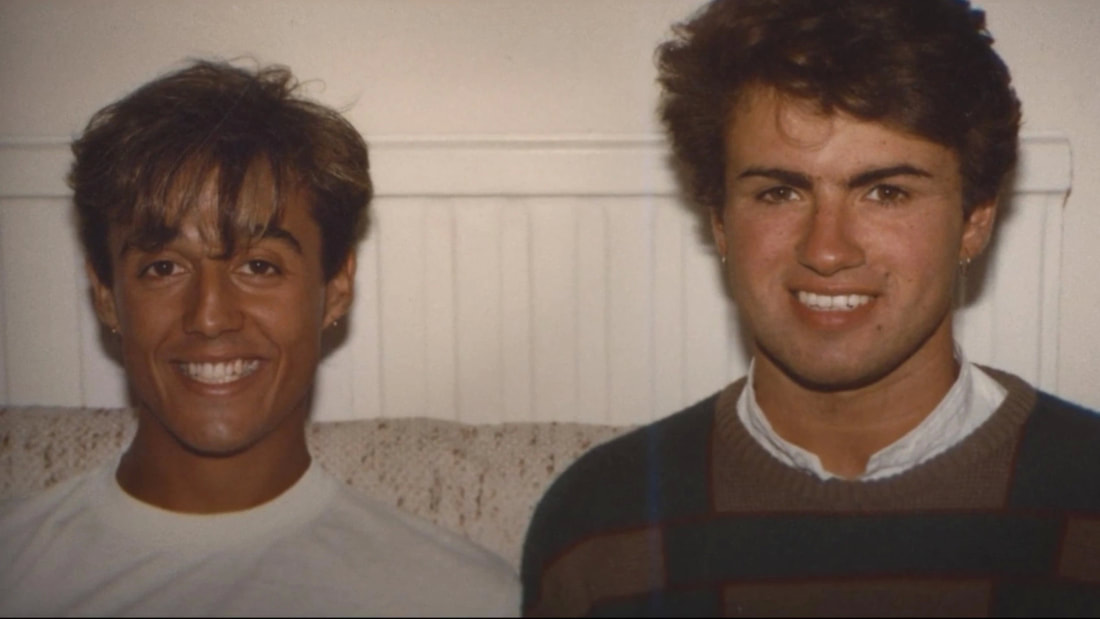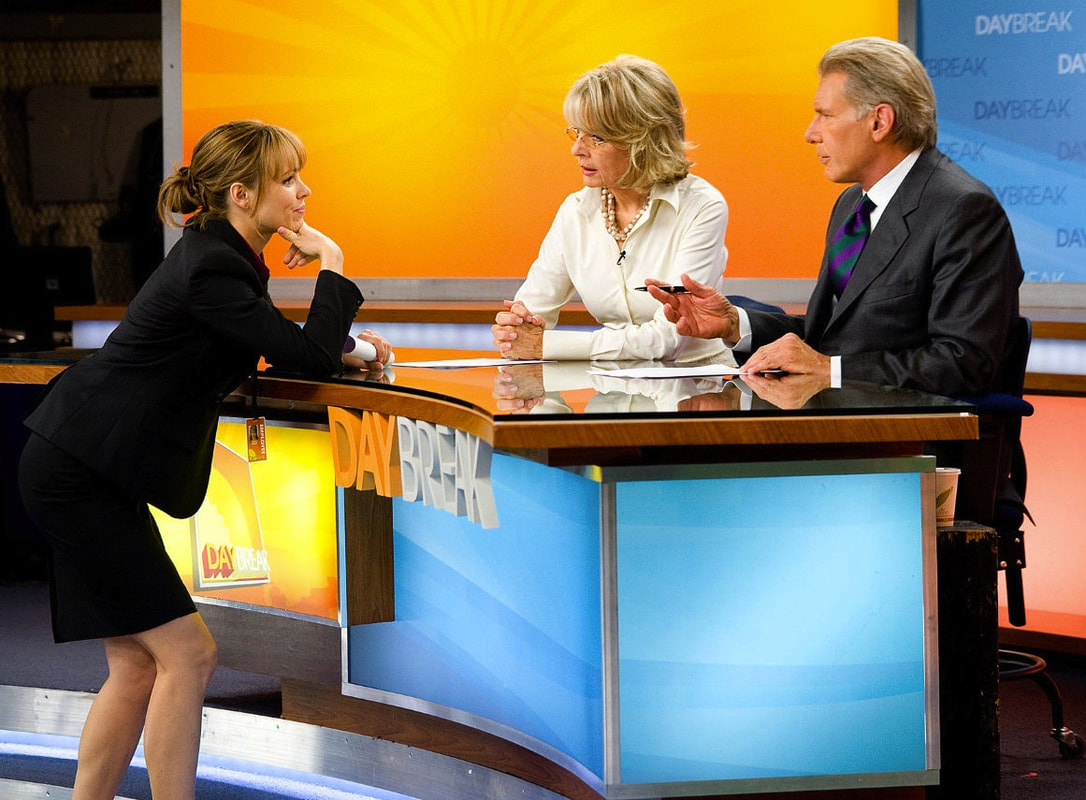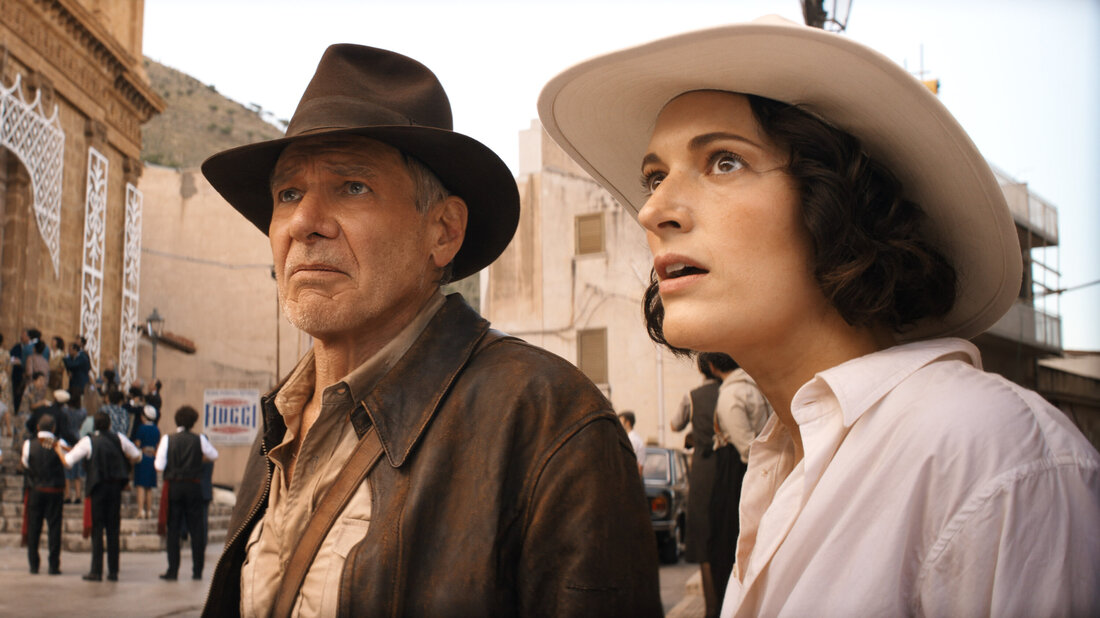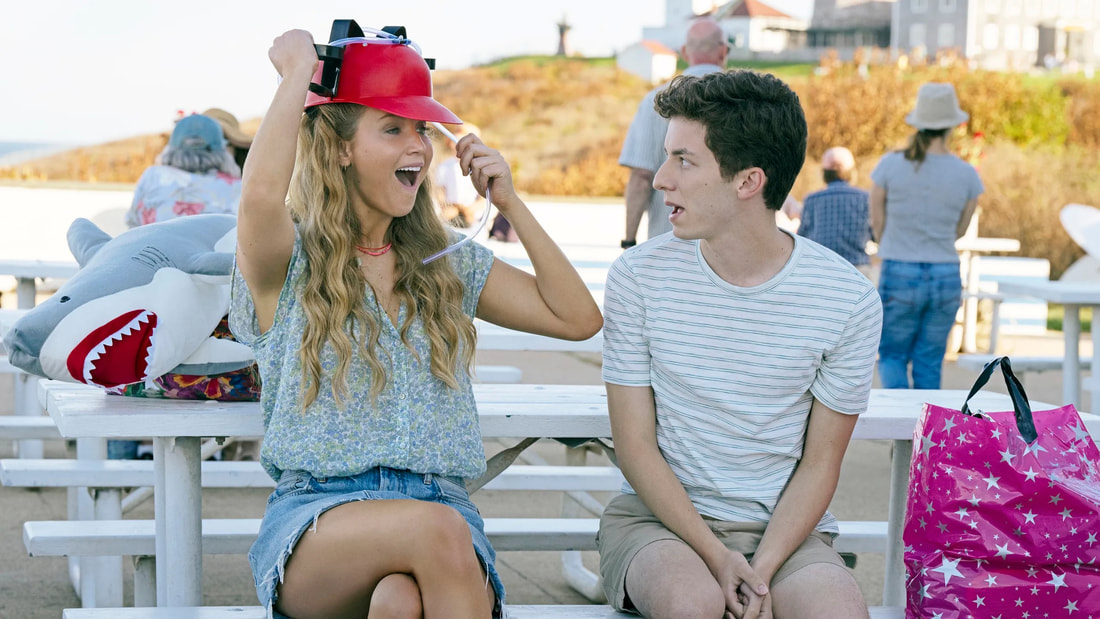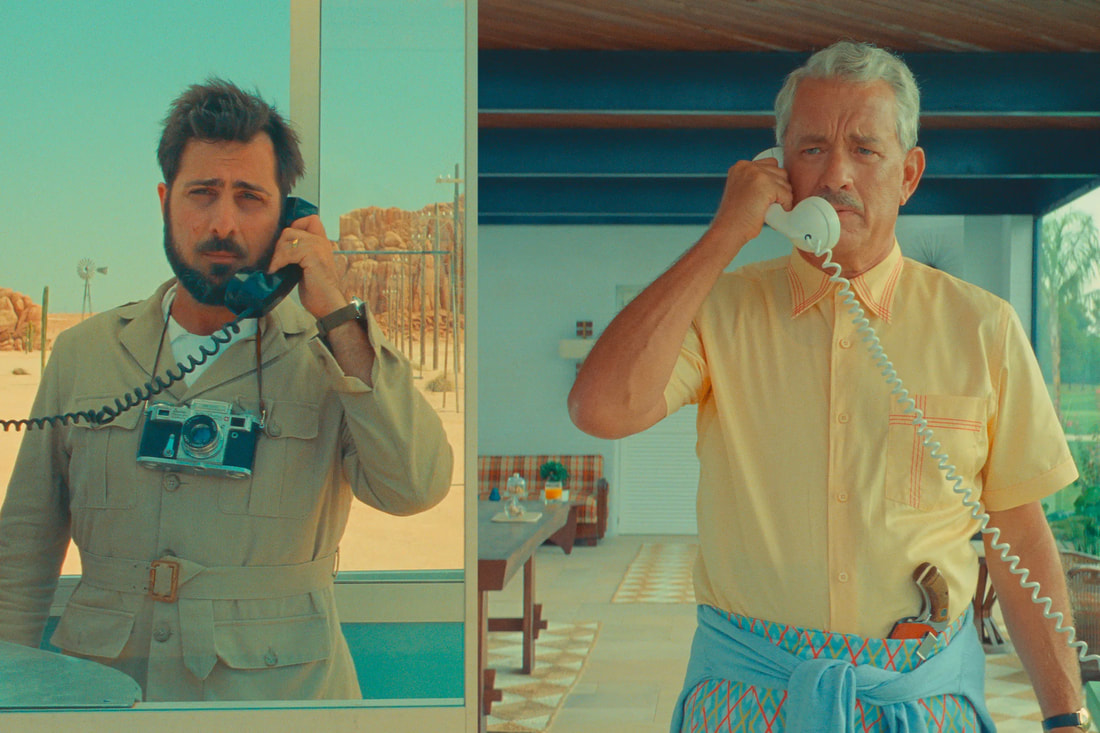|
This piece was written during the 2023 WGA and SAG-AFTRA strikes. Without the labor of the writers and actors currently on strike, the films being covered here wouldn't exist. by Philip Price Director: Christopher Nolan Starring: Cillian Murphy, Robert Downey Jr. & Emily Blunt Rated: R (nudity & language) Runtime: 3 hours Given Christopher Nolan accomplishes as much in-camera as possible there is little left to the imagination in Oppenheimer. From the bomb to the billions of stars and even boobs, Nolan gives us everything that made J. Robert Oppenheimer (the J apparently stands for nothing) tick. Was he a neurotic loner who was also a womanizer? A cold-hearted physicist as well as a bleeding-heart liberal? That seems to be the case and maybe the best case for why Nolan’s historical biopic about the “father of the atomic bomb” is so successful: it seamlessly integrates these contradictions into the narrative surrounding the moment that set the course of humanity on a different trajectory. Nolan's trademarks are well-suited to the story of a(nother) tortured genius who faces the greatest moral dilemma - possibly in history - and must come to terms with both his ambition, understanding his actions, and eventually wrangling with his legacy as he sees it being maligned and he himself being exiled by those with real power. Though technically a biopic, “Oppenheimer” doesn't necessarily carry a weight of obligation to feel like a fully formed portrait of the titular man, but rather Nolan's focus and more importantly his technique add more thematic and worldly weight to the proceedings rather than simply amounting to a highlight reel of Oppenheimer's most notable moments. This is also a more roundabout way of saying Nolan moves through much of his subject's life at a breakneck speed, especially in the beginning as Oppenheimer goes from student to well-renowned physicist in a handful of scenes, with little handholding, while still elegantly establishing what inspires, drives and irritates his main character propelling us into the second - most electric - hour of the film. Almost too dense to feel like writing anything about it would scratch the surface of Nolan's intent, what stands out as the throughline is the fragility of the egos many of these men possess and the extent they/we go to achieve if not then secure a certain status, reputation or lasting importance. Funny, of course, that in searching for validation from the world that Oppenheimer then creates what is “a destroyer of worlds” but Oppenheimer – at least as played by Cillian Murphy – conveys a man who would have us believe he’s chasing a better society and not solely a self-fulfillment only such recognition could fulfill. Nolan crafts both Oppenheimer’s frame of mind and the results of his pursuits through several separate timelines and distinct perspectives allowing for those represented via color to feel more organic and unrefined given much of it is Oppenheimer’s distinct perspective whereas the legal proceedings we see in black and white are much more static and procedural. When I say technique I mean the execution in terms of the sound design, the score, the way in which Jennifer Lame cuts and intercuts Nolan’s timelines together and of course the scope at which cinematographer Hoyte Van Hoytema composes his shots even when it’s simply people talking in a room; even if the setting or location may not feel staggering or even aesthetically unique, Hoytema and Nolan are able to emphasize the magnitude of the moment through their visual instincts. The story, the people involved, the psychological effect on those people not to mention the ramifications on the world at large are all at the forefront of our minds as we watch Murphy walk into a crowded gym of cheering contemporaries waiting to hear Oppenheimer’s reaction to the dropping of the bomb. This moment, in what is maybe the sequence of the year and crystallizes why this film is exemplary, utilizes every tool in Nolan’s bag to not only put us inside Oppenheimer’s mind but utilizes its optical and aural opportunities to transcend the screen and make us genuinely feel the anguish and fear and uncertainty about what this man has done, what he’s responsible for, and what this means for the future of the human race. Not strictly concerned with the male ego but permeating throughout, Nolan’s entire reasoning for the third hour seems to be to not only show the external and self-inflicted consequences on Oppenheimer, but more to address the systemic issues of putting lowly shoe salesman in positions of authority over the thinkers and creators. To this extent, the who’s who of supporting actors is obviously impressive. Robert Downey Jr. is the second lead and gives a largely non-RDJ performance while still maintaining being the wisest person in the room even if he might not be the smartest. Florence Pugh and Emily Blunt are the principal women of the cast each with key scenes that aid in Oppenheimer’s arc if not their own relationship's dissolution. In the true supporting roles, David Krumholtz helps lend Oppenheimer sympathy, Josh Hartnett does the same with equity and Matt Damon comes in clutch to deliver a crusty general who is snappy in his assertions and commands lending some much-needed levity; all are fantastic. Furthermore, each seems to understand the tone and capacity of their role and it is through this that the film melds their performances instinctively with Ludwig Göransson’s score to create these ominous, montage-like storytelling moments to convey how the ideas of this group of people whose convictions and intelligence were exploited for the sake of the war still attempt to remain pragmatic in the face of reality. Staggering, monumental and haunting, “Oppenheimer” is the kind of achievement that stays with you, that bleeds into your everyday thoughts and makes you consider things just a hair longer than you might have before. Nolan is a technical wizard with past complaints about his films being that they are cold, too forthright in their themes, and don’t handle their female characters well. Nolan has grown in each of these respects, but more “Oppenheimer” signals what may be the filmmaker’s biggest leap thus far as it is almost undoubtedly his greatest triumph, a culmination of his career up to this point, his magnum opus, a crowning achievement. This is a masterwork of storytelling that will take multiple re-watches to grasp the full depths of everything Nolan is using this historical figure to illustrate. The final 10 or so minutes of the film are both a literal ticking bomb (via the score) and a psychological one as Oppenheimer is forced to hastily confront those aforementioned choices, actions, and the conflicting evidence of what he did versus how he felt. Nolan typically leans on the science of his premise to provide the meat on the bones of his films should the characters and emotional beats not feel sufficient. This would obviously seem to be the case with a story like “Oppenheimer,” but while we see visual interpretations of theory early on Nolan largely abandons both these cues and much talk of the scientific process for creating the weapon to lean more into the politics, but more firmly in the direction of his subject’s mounting contradictions through every aspect of their life and how both Oppenheimer’s work and thoughts ultimately consume him.
0 Comments
This piece was written during the 2023 WGA and SAG-AFTRA strikes. Without the labor of the writers and actors currently on strike, the films being covered here wouldn't exist. by Philip Price They Cloned Tyrone “They Cloned Tyrone” is of the best of the post-‘Get Out’ generation at mixing genres and tone around social commentary. Not sure the commentary comes together as seamlessly as the rest of the movie is sure it will, but the filmmaking is assured enough to convince the viewer to stay with the story. On the cusp of being great, but a lot of fun nonetheless, much of this due to the performance Jamie Foxx turns in. I’m optimistic Foxx will pick more projects like this in the future and that director Juel Taylor will have the opportunity to make more like it. “They Cloned Tyrone” is streaming on Netflix. Flamin' Heart While a quick Google search of Richard Montañez, the hero at the center of Eva Longoria's directorial debut “Flamin' Hot,” will offer some conflicting reports on the truth of the story this film tells it would seem (as always) that the truth is somewhere in the middle meaning “Flamin' Hot” is probably about as historically accurate as something like “Argo.” While there may or may not be cause for some type of moral debate around the authenticity of Montañez's story what I tend to look for when these types of questions arise is the intent of the film. If Longoria's intent was purely to heap praise and adoration upon Montañez said complications around whether or not this guy is telling the absolute truth might be more relevant, but that is not why Longoria seemingly chose this as her first film. It's obvious Longoria desired to tell this story because outside of it following the underdog "American Dream" arc it is about a Hispanic underdog who not only wants to prove to himself, his father and his community that he's more than what society has labeled him, but also wants to prove to white corporate America that both he and his community are good enough; that he and they are worth listening to. To this end, “Flamin' Hot” is just inspiring and entertaining enough without ever feeling like it captures the spice that made its namesake a national craze. “Flamin’ Hot” is streaming on Hulu and Disney+. The League As someone who isn't an avid sports fan in general and even less enthusiastic about baseball I'm not sure how much of what is included in Sam Pollard's documentary “The League” is common knowledge to those who are and how much of what is presented here is rather revelatory. Either way, Pollard presents a sturdy, clear-eyed look into what is a seemingly (if not unsurprisingly) overlooked aspect of baseball's history: the Negro League. This is rather by the books as far as documentaries go a la lots of archival footage and talking head interviews but given I didn't know much about the subject matter beforehand I found this enlightening, but I was fascinated by the conflicted feelings this seemed to conjure for many of the subject matter experts that were interviewed. Beyond being introduced to characters such as Andrew "Rube" Foster who deserves his own narrative feature and batting phenom Josh Gibson whose eyes, in any picture, have the ability to pierce your soul there is this complicated notion of avoiding integration. Not necessarily avoiding it, but at least acknowledging how much the owners and many of the players involved in the Negro League would have to give up in order to get in. Writing and watching from a place of privilege I was disappointed in myself for not recognizing that even when the needle was moved in the right direction morally and socially for the world at large it still came at a cost for those who'd already lost and sacrificed more than they should have. You can rent “The League” for $6.99 on Amazon Prime Video. This piece was written during the 2023 WGA and SAG-AFTRA strikes. Without the labor of the writers and actors currently on strike, the films being covered here wouldn't exist. by Philip Price Director: Greta Gerwig Starring: Margot Robbie, Ryan Gosling & America Ferrera Rated: PG-13 (suggestive references & brief language) Runtime: 1 hour & 54 minutes “Barbie” has its fake plastic cake and eats it too. When the first note of Lizzo's "Pink" drops accompanying the reveal of production designer Sarah Greenwood's "Barbieland" as these real-life dolls dressed in Jacqueline Durran‘s wardrobe descend from their Dreamhouses there is a sense that what we, the audience and spectator, are being welcomed into are images and feelings that possess an equal amount of simplicity and elegance. There is the immediate sense of influence in that one can easily see images and references from this movie integrating themselves into the culture; stills painted in Hollywood murals alongside classics like “The Wizard of Oz” or characters standing next to Marilyn Monroe. At the same time, there is an adventurous sense that one has no idea what they're truly getting themselves into or at least, where this movie might go both literally and thematically. By the final scene (or two) of the film it is clear this duality of simplicity and elegance is wholly intentional so that the film works on different levels for different audience members whether that be someone who currently plays with dolls, someone who once played with dolls, or even those who always felt too boxed in by expectation to either play with dolls themselves or at least acknowledge the appeal of them. Yes, this is a movie about a doll, but the “we’ll sell more toys” aspect didn’t bother or invade my experience because of how intelligently writer/director Greta Gerwig (“Lady Bird,” “Little Women”) uses this packaging to tell the story she and co-writer/life partner Noah Baumbach decided to tell or how it emphasizes the themes they wanted to explore and discuss. In addition to the levels and ideas (or levels of ideas), “Barbie” is also just a Technicolor fever dream of musical numbers and comedy bits that land with such frequency that even if your sympathy for Ken is maybe greater than it is for Barbie or even if Allan weirds you out a little bit (which we’ll get to) there is plenty here for all to enjoy if not hopefully (eventually) consider. As an (almost) middle-aged male with no emotional or nostalgic connection to the Barbie brand, I recognize I’m not the “target audience,” but I can’t help but feel this film was made just as much for the purposes of informing and enlightening me and those like me as it was to empower and highlight the women and young girls it was ostensibly made for. That is to say, Ryan Gosling’s Ken and his arc play a major role in the journey and arc of Margot Robbie’s Barbie; not all of it (Barbie couldn’t care less about Ken in any romantic sense), but more than I initially expected. While I am always happy to see Gosling play to his strengths a la his slapstick abilities and just as funny dry sense of humor that inform his line readings I half-expected his portrayal of Ken to be a crutch the movie would lean on in intervals strictly for said comic relief … it is not. Again, as an (almost) middle-aged male I realize this is a very (almost) middle-aged male reading of the film, but this is just as much a journey of self-discovery for Ken as it is for Barbie and while I’m sure there are many viewers of my sex, age and ethnicity that will be threatened by a movie sending a message of empowerment and self-discovery to women who hold positions outside of marriage and motherhood (I can’t believe I even have to type this still) it is also fascinating so many will fail to see themselves so strongly represented in a movie made for women. It would be easy to get into the weeds, but ultimately the structure of the ideas is, again, fairly simple in their elegance in that “Barbieland” posits a world that is the inverse of our own. This naturally gives rise to both very comedic and very affecting moments as Barbie and Ken each come to their own realizations about how their assumptions about the real world and how it parallels "Barbieland" are incorrect. That, of course, is the intent – to wrap the contradictions and complications of being a woman in a society built by and for men – in a digestible, Technicolor comedy and yet, even as “Barbie” gives more time and thought to its male lead than a movie about a man having an existential crisis would give to his wife or partner there are those who interpret this as a threat rather than as the extremely creative, well-drawn, and incredibly funny case for some semblance of equality and validity that it is. While watching the film I wrote down “In a world of Ken’s, be an Allan.” Michael Cera’s Allan doesn’t get much screentime and works more in the capacity I expected Ken to in the film at large, but what Allan and his singular presence do illustrate is what both Barbie and Ken are trying to investigate and discover which is how to be one’s self apart from pre-ordained expectations. Allan isn’t looking to impress a Barbie every day, he couldn’t be bothered by what “job” he has that might otherwise lend him credibility or status while also having the confidence to easily leave the only place he’s ever known as well as the strength to beat up a couple of construction workers when the situation calls for it. Cera delivers one of the biggest laugh lines of the film for me simply because of my points of reference, but he also serves as a perfect conduit for this kind of neutral, well-balanced cynic who is still affable in the company of others. Sure, the fact he’s unique in that he’s the only one of his kind is a little on-the-nose in terms of what Gerwig and Baumbach as well as their main characters are chasing thematically, but Allan is used in such a specific way that the point he illustrates only emboldens the larger ideas being conveyed through the plight of the main characters. That was probably too much about a small, supporting character in a movie led by Margot Robbie and Ryan Gosling so I should clarify that both Robbie and Gosling aren’t playing around here despite literally playing dolls. Both actors are fully invested not only in the physicality required to bring Gerwig’s ideas to life, but also in the sincerity of the journey they each go on. Gosling is getting the buzz and will inevitably be the number one thing people are talking about as they leave the theater and deservedly so. The man absolutely kills every funny line he gets and then straight-up murders his big musical number, but he does get the bigger, funnier, showier role and thus the reason it is being talked about most. No hate. I’m all in on Gosling getting a Best Supporting Actor nomination if not a win and can only hope the “I am Kenough” hoodie he sports at the end of the movie is available for purchase soon because I want one, but Robbie (who has been captivating since showing up 10 years ago in “About Time”) does the heaviest lifting here. Not only is Robbie embodying this nearly 60-year-old ideal of stereotypical female perfection, but she is selling the comedy of "Barbieland" as well as turning around a couple of scenes later and making the audience feel genuinely upset by how the first tween (Ariana Greenblatt) she encounters in the real world interprets the whole of her being. Robbie gives a performance that not only rings true in both of these facets but must also solidify what everyone else in the cast is doing as well as support what everyone else behind the scenes has built. It is quite the ask, but Robbie makes it feel effortless. Though I doubt Robbie will receive the recognition she should for it, her performance opposite Rhea Perlman in the film’s closing moments almost guarantees Perlman’s performance will. America Ferrera, Kate McKinnon and Will Ferrell are also of note in this world and while McKinnon and Ferrell are each given their moments to deliver their own brand of off-kilter it is Ferrera who has the show-stopping moment in which she delivers the thesis, the culmination, the coup de grâce to the patriarchy if you will, the treatise of the movie’s exploration on the feminist investigation. It’s a moment one can see coming from a mile away and yet Ferrera’s delivery in this one moment swiftly swings from rage to impassioned to sentimental and back as she inspires the recently brainwashed Barbies to play on the egos and petty jealousies of the Kens in order to take back their rightful place as the rulers of "Barbieland". While anything but subtle and despite Ferrera’s character and arc otherwise feeling like more of a function of the plot to this point it is this turn that integrates her character, Gloria, into the fun of the film as Sasha (Greenblatt), her daughter, looks on proudly and finally drops her angsty façade to join her mom for some rebellious, liberating fun that also sends a message. I maybe admire “Barbie” more so than I actually love it, but I do feel a deep adoration for what Gerwig and all involved have accomplished here. Not only for the aforementioned musical cues, production and costume design, as well as Rodrigo Prieto’s candy-coated cinematography but for the small directorial flairs included such as the matching of the offices down to the light fixtures and of extras walking through the background when going to a split screen or – as someone who is admittedly logic-driven – trusting her audience with the lack of logic or explanation for how the connection between "Barbieland" and the real world and dolls and their owners actually works. There is no science to the way these things are connected and one either has to accept that and stick with the idea that this is a fantasy land and everything might not make sense in the same way it does in the real world or just not, but even to that extent Gerwig and Baumbach are sure to include a line of dialogue late in the film that is spoken by one of the Kens in the denouement of battle about how we “make things up just to deal with how uncomfortable it is” and while not explicitly referring to the plot machinations of the movie one gets the sense this is one part commentary, one part suggestion. The degrees to which this got weirder than believed would be permitted is truly rewarding though, as the broadness to which the existential crisis is played make it work as a legitimate conflict while the smaller moments between characters are authentic to the point the film delivers a real weight for viewers to carry with them once the film is over. It is the balance of that simplicity or the more obvious targets at which a ‘Barbie’ movie would be obligated to take aim and the elegance with which Gerwig handles these ridiculous scenarios that not only emphasizes the immediate vitality the film has injected into the culture, but more that the film itself is a statement for how Gerwig didn’t allow herself to be put in a box that will help this product, this art, last far longer than any of us. This piece was written during the 2023 WGA and SAG-AFTRA strikes. Without the labor of the writers and actors currently on strike, the films being covered here wouldn't exist. by Philip Price Director: Celine Song Starring: Greta Lee, Teo Yoo & John Magaro Rated: PG-13 (language) Runtime: 1 hour & 45 minutes There isn't anything particularly flashy about playwright Celine Song’s debut feature film, “Past Lives.” It is quite a simple and straightforward story with a sound structure concerning star-crossed lovers that is impressive because of its perceived lack of effort. The ease with which the film appears to pull off its tightrope of emotions would initially signal something lighter and less major; admittedly, this initial feeling made me question not necessarily the significance of the work, but more its weight. Of course, then the final scenes unfold and everything Song has been building comes crashing down like a tidal wave of emotions and you can't help but be swept up in them even if you've never experienced something similar in your own life. While maybe not the monumental achievement I'd been led to believe it was this line of thinking around preconceived notions and expectations that became somewhat critical as I sat watching the film and the idea of how Nora (Greta Lee) and Hae Sung (Teo Yoo) would likely have never seen one another again had they not lived in a modern era with access to social media and Skype. A moment of insight, if not a particularly fresh one, about how much our lives are dictated not by fate but by circumstance was surprisingly striking. This naturally led to me questioning how I might have perceived the film differently if I'd seen it with one of the first audiences at Sundance or even better, without any knowledge of it or its critical reception at all yet I couldn't shake the idea that despite all there is to admire about the craft and execution of the film that this was still being somewhat oversold as a grand story of love instead of simply appreciated for its small, observational truths about how messy life becomes and how there isn't always someone to blame for the mess. That isn't to say there's not a valid argument for those who found the impression this left more immense than I as the significance around Nora and Hae Sung's romance is not lost on me. I could sit here and type out all the things you've read about this movie elsewhere and what is so exciting about it including how wonderful the performances are, how subtle yet moving the score by Christopher Bear and Daniel Rossen is, or how intimate the exchanges are regardless of their larger implications, but it feels more effective to acknowledge how Song and her actors convey all of this and how the music compliments as much because it truly is all in the performances of Lee and Yoo that we are sold on the connection, the longing and the loss. For starters, Song is literally very observant with her camera. Song, the director, is not concerned with coverage or cross-cutting to place as much of the performances on screen in close-up, but rather her camera hovers on the conversation and its participants - allowing the body language to say as much as the dialogue. Moreover, how Lee and Yoo carry out the third act meeting with one another by hardly being able to speak because they can't help but stare in disbelief at the physical being in front of them despite yearning to say so much enough to make even the blackest of hearts giddy. So much to say but no words to properly convey. The MVP of the film is John Magaro though, who makes this quandary of logic and love and of convenience and certainty the more layered and complex situation that it ultimately is. If he were in fact the "evil, white, American husband standing in the way of destiny" as he so describes himself it would be an easy out for both the story and for the character of Nora, but Magaro plays Arthur with an understanding and surprisingly calm temperament. One could only hope to be as perceptive and (mostly) confident as Arthur is in this situation, but in his ability to acknowledge the complications of the facts of both he and Nora's story as well as Nora and Hae Sung's, there is an added layer of heartbreak that makes the whole of the scenario (and the final scene of the film) as genuinely devastating as it is. “Past Lives” relies a lot on this old Korean concept of "in-yun" to relay its themes and ideas. In-yun is about how fate brings two people together based on countless connections in their previous lives, but Song's film is mostly about how while you can't control who walks into your life you can work to keep those you want in your life in this life. This doesn't make Nora's "decision" any easier (though the film is far too mature to simply hinge on as much), but it does beautifully illustrate her conflicted feelings of belonging to two different places at the same time while knowing the difference between her past and her future. This piece was written during the 2023 WGA and SAG-AFTRA strikes. Without the labor of the writers and actors currently on strike, the films being covered here wouldn't exist. by Philip Price Insidious: The Red Door As a fan of this series, I was excited both for the return of the Lambert family to the core of the franchise as well as to see what star Patrick Wilson might do with his directorial debut. Unfortunately, aside from a few solid sequences and some legitimately scary staging “Insidious: The Red Door” feels like a dimly lit and minimalistic production that lets the narrative linger too long to be compelling making The Further-heavy finale more careless than conclusive. Serious props to Sinclair Daniel though, who effectively steals the movie. “Insidious: The Red Door” is now playing in theaters. Joy Ride That “Joy Ride” is as moving as it is laugh-out-loud funny is stunning. The laughs come quicker than a virgin, but the sneaky strong themes of self-discovery and belonging pay off in spades through its genuine heart. Don’t fret though, it’s still gloriously and unapologetically filthy. “Joy Ride” is now playing in theaters. Wham! I dreamt of becoming a famous pop star from the time I was 12 years old. My three younger brothers and I would sing and dance and just knew we were going to make it one day. We didn't. Watching “Wham!” it made all those longing feelings return. Knowing the arc of George Michael's solo career, his struggles with drugs and alcohol, and the complicated feelings of remaining closeted about his homosexuality that resulted in his music and career becoming the whole of his personality only makes the end of his life more tragic which in many ways makes me thankful for what I have now in exchange for what I always thought I wanted my life to be. That said, the idea of the titular band remaining so finite as to keep its youthful essence intact is admirable in a way I hadn't really considered in regard to their legacy and furthermore, it works. I haven't stopped listening to Wham! in the week since I've seen the film as it perfectly captures those summer days when we'd dance and dream. “Wham!” is streaming on Netflix. This piece was written during the 2023 WGA and SAG-AFTRA strikes. Without the labor of the writers and actors currently on strike, the film being covered here wouldn't exist. by Julian Spivey In December I saw something called the “12 Movies Challenge” on Facebook. The premise was that you would have 12 months to watch 12 movies recommended by 12 friends. I don’t often participate in such social media challenges but being a movie buff I felt this might be an interesting way to get out of my comfort zone a bit when it comes to watching movies. My Facebook buds gave me some films that I’ve been meaning to watch and I pretty much front-loaded those on the list – though not explicitly stated in the challenge rules I am opting to watch one film a month. A Best Picture winner like “Out of Africa” is an obvious choice for me to get to at some point – that point is now going to be March of this year. But there are certain movies I’m not really looking forward to all that much – I’m looking at you “The Ghost and Mr. Chicken,” my August selection. Then there’s the acclaimed stuff that isn’t really up my alley like the anime feature “Spirited Away,” which I’ve scheduled for November. That will truly be me getting out of my comfort zone. Here are the 12 movies recommended to me and the months I’ve assigned myself to watch them: January: “Merry Christmas, Mr. Lawrence” (1983) February: “Till” (2022) March: “Out of Africa” (1985) April: “Legally Blonde” (2001) May: “The Devil Wears Prada” (2006) June: “The Birdcage” (1996) July: “Morning Glory” (2010) August: “The Ghost and Mr. Chicken” (1966) September: “Pan’s Labyrinth” (2006) October: “Rocky Horror Picture Show” (1975) November: “Spirited Away” (2001) December: “The Last Laugh” (1924) I’m not going to lie, my recommendation for July in my 12 Recommended Movies Challenge is the one I’ve been dreading the most all year simply for the fact that out of all 12 movies recommended to me at the end of last year, it’s the only one with a “rotten” rating (55 percent) on Rotten Tomatoes. Now, that doesn’t mean a whole lot – I’ve enjoyed movies with “rotten” ratings before and I certainly didn’t enjoy “The Devil Wears Prada” in May despite it having a “fresh” rating among a consensus of critics. I take critical assessment seriously as someone who wants to watch as many good movies as possible and doesn’t like to spend time on the rest, but ultimately we’re going to like what we like and dislike what we dislike. When it comes to director Roger Michell’s 2010 workplace/romance comedy “Morning Glory,” written by Aline Brosh McKenna, I found myself agreeing with the critics on this one. I didn’t enjoy it for a few reasons I’ll get to in a bit, but let’s start with the positive … Rachel McAdams. I haven’t seen McAdams in too many films. I saw the stupid Rob Schneider comedy “The Hot Chick” and the overly dramatic sob story “The Notebook” in high school half a life ago. I saw her in “Wedding Crashers,” also many years ago, but until looking at her filmography now I had no recollection of her being in the movie. In fact, I hadn’t seen McAdams in anything since Woody Allen’s 2011 Best Picture nominee “Midnight In Paris,” which I liked quite well but don’t remember much about McAdams’ performance. As morning show producer Becky Fuller in “Morning Glory,” McAdams is very lovely. She’s funny, she’s interesting, and she’s more than capable of pulling off the performance of such an authority figure when the film lets her, we see this almost from the start when she fires Ty Burrell’s chauvinistic, perverted co-anchor Paul McVee in her very first staff meeting. At this point in the film, “Morning Glory” felt like it might be a fun workplace comedy about a smart, hardworking woman coming into a job and saving it – and part of the film is that – I just wish it had been the only focus. Once the rom-com part of the story comes in with Patrick Wilson’s Adam Bennett, another producer at the IBS (really, guys, don’t y’all know what that stands for?!) Network, the movie loses its way a bit – and idiotically turns Becky into a bumbling fool. Can one be a strong, hardworking woman and a bumbling fool in certain situations? Yes, I imagine so. But, for me, those aspects played against each other. But that wasn’t my biggest issue with “Morning Glory.” My biggest issue is Harrison Ford and some of the most egregious, unbelievable over-acting I’ve ever seen committed to film. I don’t even know that Ford was just miscast in the role. But for some reason, he chose to play his gruff newsman Mike Pomeroy far too aggressively. Yes, the character is a grizzled serious news reporter, but I half expected Ford to break out a line of: “Get off my set!” in the same vein as he does as the President of the United States in the action film “Air Force One.” I don’t feel like “Morning Glory” gets enough use out of Diane Keaton as the long-running co-host of the morning program a la “The Today Show,” but with much worse ratings. Her trying to one-up Pomeroy, especially with the final goodbye of the broadcast, was one of my favorite parts of the film though. “Morning Glory” was recommended by my friend Cassey, for whom it’s a feel-good movie. I’m sure it is for a great many viewers – one of the first things you see when you Google it is: “Funny, Feel-good and wry.” If it’s a feel-good watch for you too, please enjoy it. My August recommendation will be the 1966 comedy “The Ghost and Mr. Chicken,” starring Don Knotts. I enjoyed Knotts’s Emmy-winning performance on the classic ‘60s TV series “The Andy Griffith Show,” but I’m curious to see how that slapstick lunacy translates to feature length. I see the script was written by veteran TV writers Jim Fritzell and Everett Greenbaum, who wrote some of my favorite episodes of “The Andy Griffith Show” and “M*A*S*H.” That’s promising. This piece was written during the 2023 WGA and SAG-AFTRA strikes. Without the labor of the writers and actors currently on strike, the film being covered here wouldn't exist. by Philip Price Director: James Mangold Starring: Harrison Ford, Phoebe Waller-Bridge & Mads Mikkelsen Rated: PG-13 (sequences of action & violence, language & smoking) Runtime: 2 hours & 34 minutes To no one's surprise director James Mangold - a man who has made solid films across multiple genres - does well to craft a loving and honorable homage to Steven Spielberg. There is no broader canvas on which to paint Spielbergian strengths than an Indiana Jones adventure and Mangold does his best to utilize Spielberg's trademark sentimentality along with his own brand of sturdy and assured filmmaking concurrently for the purposes of, if nothing else, ensuring Harrison Ford's titular character is given a properly satisfying farewell. Though “Indiana Jones and the Dial of Destiny” may not reach the heights of the first or third entries it's a far more enjoyable film than the second and a much more gratifying experience than the fourth, which is to say this follows two stone-cold classics as the third best film in the franchise; nothing to scoff at, especially given the star of this action film made it as a 79-year-old. It is to the point of Ford's age that ‘Dial of Destiny’ (and yes, I do think there could have been a better subtitle for this movie even if I'm not yet sure what that is) finds its true meaning beyond the chase for the MacGuffin and besides the establishing of supporting players that might continue this franchise elsewhere should Disney decide to do so (they shouldn't). That is to say, said titular MacGuffin is very purposefully made an agent of time manipulation in order to construct a story around not only the pursuit of artifacts and the pedigree and recognition that may come with as much, but more to emphasize the inability to go back and alter our regrets or act differently given a longer perspective. After the flashback-based opening set piece we are introduced to an unhappy Dr. Jones in 1969, a man out of time who doesn't even pretend to understand where he fits into the modern world or how optimism continues to exist. Indiana Jones is not who he once was no matter how much we or he would like him to be and dealing with this harsh truth and tackling it head-on is largely what gives this fifth film that comes to us some 42 years after Ford first donned the fedora the endearing quality that delivers on both the genuine entertainment and sincere send-off. Does the film need to stretch past the two and half-hour mark to accomplish these results? Absolutely not and there are portions in the middle where I had to actively remind myself of both the current and overall objective as the film so breathlessly transitioned from one chase sequence to the next and with little to differentiate one from another. Aside from a slightly muddled middle though, there is plenty to appreciate in Mangold’s film from the way in which it handles Indy’s life falling apart in the set-up, the large action sequence through the Apollo 11 astronaut ticker-tape parade in New York City, and the introduction of Phoebe Waller-Bridge’s Helena who is part stand-in for Mutt, but mostly a nice continuation of Karen Allen’s Marion in the tradition of strong, self-sufficient female characters that don’t take shit from anyone, including our hero. There is a deep sense of regret that permeates through the whole of the movie and more specifically in Ford’s (clearly committed and more fragile) performance lending each of the action set pieces a bit more heft. A diving sequence featuring Antonio Banderas is a nice change of pace and kind of sets the stage for the finale where the Helena character along with her Short Round AKA Teddy (Ethann Isidore) help make the third act a chain of events where the bar gets increasingly higher yet the execution is able to keep in step as Mangold and co. really land the plane (pun intended) on upping the stakes along with the more outlandish elements of the plot. Of course, ‘Indiana Jones’ finales tend to always go for broke and ‘Dial of Destiny’ is no different in that it both feels true to ‘Indiana Jones’ conventions while also resolving the inner conflict of our protagonist and rounding out the themes quite nicely. The most important facet regarding ‘Dial of Destiny’ is that it feels necessary in its finality. As much as a ‘Kingdom of the Crystal Skull apologist as I am it’s not difficult to admit it would have been a slight bummer had that been the last time we saw Ford portray the character on screen and while, as stated earlier, Ford was closing in on 80 when he shot this film there is a liveliness to the execution even if there is a solemnity to the tone. One of the (surprisingly) weaker links in this movie is Mads Mikkelsen’s Dr. Voller, a Nazi turned NASA hired gun who is after the titular dial along with Helena. Aside from expecting more from a villain played by Mikkelsen, there seems to be an extra layer of commentary to access here about why Indiana Jones is always running up against Nazis and how, even as the times change, the intentions and existence of evil men do not. I’m not smart enough to assess the whole of what the screenplay might be attempting to say, but it feels there might have been a more effective way to communicate this concept especially when you have someone as magnetic as Boyd Holbrook playing a Mikkelsen lackey who is clearly devoted to Voller on a level that makes you question his commitment, but nothing more is developed or explored in that relationship or in these ideas. There are other knits to be picked, no doubt, but while ‘Dial of Destiny’ may not reach the highest highs of the franchise that came before it’s aware of what it should make audiences feel and there is enough of that intrinsic DNA present alongside the growth and progression necessary for this final film to have successfully delivered both what fans wanted from the franchise as well as what it needed. This piece was written during the 2023 WGA and SAG-AFTRA strikes. Without the labor of the writers and actors currently on strike, the film being covered here wouldn't exist. by Philip Price Director: Christopher McQuarrie Starring: Tom Cruise, Rebecca Ferguson & Hayley Atwell Rated: PG-13 (intense sequences of action & violence & some language) Runtime: 2 hours & 43 minutes When you’re seven films into a franchise and up has been the only way to go for the better part of a decade there are bound to be those who look at a next entry that does the same things the last handful of entries have done, both positive and negative, and decide they’re tired of the schtick and that it’s time for the narrative to change so that the star and his brand may redeem itself at least once more. This is what seems to be happening with “Mission: Impossible - Dead Reckoning Part 1” (the cockiness of the cliffhanger likely making certain folks more eager to put the franchise in its place) yet this seventh film in the series and the third written and directed by Christopher McQuarrie only continues to improve upon or at least operate at the same level these films always have if not becoming slightly more preposterous by attempting to tackle a more contemporary and relevant issue through its story. Though story is obviously important to the ‘Mission: Impossible’ films it is not their top priority, and it surprises me that such quandaries around plot semantics are what will seemingly rewrite the cultural narrative around these films that are largely lauded for their stunt work and commitment to their practicality. Personally, if Tom Cruise and McQ want to get a little more outlandish (and there is an admitted silliness here) with their antagonists I’d say they've earned a little wiggle room as they still deliver tenfold when it comes to the aspects people pay to see these excursions on the big screen for. Having not had a chance to re-visit any of the previous films prior to experiencing ‘Dead Reckoning Part 1’ I’m unsure if any of them have tapped into this as keenly before but given the core team has now essentially been the same for the whole of the McQ run there is an emphasis on the IMF being this island of misfit toys if you will. Whatever the politics were around the disavowing of the team and organization prior there seems to be no lack of backing presently as Henry Czerny returns as Agent Kittridge who is again sending those cool little "to accept or not to accept" mission invitations. This most recent invitation places Cruise's Ethan Hunt on a globe-trotting mission to find his old friend (and lover?) Ilsa Faust (Rebecca Ferguson) has come into possession of one-half of a cruciform key which all the world’s governments are seeking even if most don't seem to know what it grants them access to. The other half of the plot concerns an A.I. program on the loose called "The Entity" with a main lackey in Gabriel (Esai Morales) who seems to have a history with our hero and who has his own lackeys led by Pom Klementieff. Ving Rhames and Simon Pegg return, which is of course, instrumental in that aforementioned emphasis on this team in particular, what led them to this lifestyle, and why they continue to do what they do. I'm not saying ‘Dead Reckoning Part 1’ gets super psychological, but you repeat the same crazy behaviors enough and you start to question what attracts someone to that lifestyle and this film is at least aware enough of that to comment on it. While still finding this to be as fun and engaging as any of the other films in the series I understand the waning enthusiasm given the weakest links are two elements that have both been introduced here making them all the more glaring. For starters, while the timing is obviously impeccable the execution has yet to be perfected, but I guess that's what happens when you're on the front lines. The ‘Mission: Impossible’ franchise has never shied away from using real-world influences to inform their villains and while the concept of "The Entity" is in fact a genuinely frightening one it simply doesn't test the boundaries as it should. This antagonist is an all-knowing, all-powerful, but obscured being who will always lurk in the shadows; a veritable threat, to be sure. What detracts from the menace of such a threat is the physical manifestation of it via screensaver-like graphics in a nightclub setting along with the conveniences it seems to allow for when it chooses to interfere and when it doesn’t. Oh, Benji is able to put his vehicle in "self-drive" mode so he can focus on assisting Ethan without the Entity mucking up his route. Sure. The CIA wants to track a known thief who is interfering in Hunt's mission. You'll need to go completely analog. Like, it's a great launching pad for a series that likes to place its heroes in tough spots where we question the odds of their survival (even if we know they'll make it) and yet McQ and Erik Jendresen's screenplay doesn't go as crazy as it could have. Next is the addition of Hayley Atwell's "Grace" as the previously mentioned thief interfering in Ethan's mission as Gabriel has hired her to lift the cruciform key from the IMF agents. Atwell is obviously a capable action star and she's more than believable as something of an inversion to Ethan Hunt morally, but without venturing into spoilers it is more the function of her character in relation to other characters in the story that set her character up for failure - at least in the eyes of the viewers. The sheer existence of Grace as played by Atwell will draw comparisons to Ferguson's Faust whom Grace is not as capable as and somewhat annoyingly so given her arc as well as representing something of a pattern in these movies that could have been so easily rectified at this point that it's difficult to believe this is the route McQ and co. chose to take. It's unfortunate given Atwell's natural charisma and screen presence that her character has been somewhat plagued with all this baggage, but with only one more film left in this Tom Cruise-led series – supposedly - it's a real mystery how a movie based around an evil supercomputer with all the knowledge and decision-making logic in the world couldn't draw a better, more logical conclusion than the writers did here. Nevertheless, I will always admire a film that waits a solid half-hour to drop a title card and ‘Dead Reckoning Part 1’ relishes in this choice. The way Lorne Balfe's score bursts onto the screen with said title card after having allowed the audience to settle into at least three different scenarios prior feels less like it takes one out of the action and more like it propels you forward at full speed into the rest of the mission. At two hours and 43 minutes, this isn't a concise film necessarily, but the pacing is so frenetic, and the stakes so involving that the runtime flies by. To this point, Balfe's score is both literally and figuratively instrumental in the construction of large swaths of the movie as McQ and editor Eddie Hamilton (“Top Gun: Maverick”) rely heavily on a montage-like structure to shape the focus of the film around the action while treating the brief, but crucial dialogue scenes and exposition dumps like interludes on an album. While not as operatic or visually stimulating as “John Wick: Chapter 4,” it is still the kind of boots-on-the-ground, balls-to-the-wall style of filmmaking you want to see more of in the action genre. In fact, ‘Dead Reckoning Part 1’ shares a fair amount of similarities with another big-budget studio release this summer that is also a sequel in a long-running franchise that also features a car chase in Rome, an antagonist who enjoys suffering more than the actual death, and a cliffhanger of an ending set on an exploding bridge, but what differentiates ‘Mission: Impossible’ from this other franchise (which I admittedly also enjoy, but for very different reasons) is the filmmaking behind it. Cruise is obviously committed to delivering legitimate spectacle on a scale like few others and between the Fiat car chase, the claustrophobic alley fight, and the final train car sequence in this film it is beyond evident that his commitment to the theater-going experience is as strong as ever even if that commitment also continues to solidify his legacy ... but you know, it's probably for the greater good. by Philip Price Director: Gene Stupnitsky Starring: Jennifer Lawrence, Andrew Barth Feldman & Matthew Broderick Rated: R (language, nudity, sexual content & brief drug use) Runtime: 1 hour & 43 minutes Remember in 2005 when “Wedding Crashers” was heralded as the return of the R-rated studio comedy?
Prior to, comedies had devolved somewhat into the deluge of late-‘90s high school comedies, PG-13 rated spoofs (a ripple effect of the R-rated “Scary Movie” in 2000), and Farrelly brother films that showed them quickly coming out of their prime. “Old School” jump-started the "Frat Pack" era in '03, but it was ‘Crashers’ that solidified their ability to perform financially and ushered in Judd Apatow's gang who would dominate through the 2010s. This all to say, while I'm as happy as anyone that Jennifer Lawrence's “No Hard Feelings” is being marketed as the "return of the R-rated mid-budget studio comedy" it ultimately feels more like an “Old School” than it does a “Wedding Crashers.” At least in terms of the culture if not also the quality. “No Hard Feelings” is a perfectly funny and surprisingly sweet raunch-fest, as writer/director Gene Stupnitsky (“Good Boys”) guides it through the familiar beats of a rom-com with an emphasis on the "com" given the more outlandish premise. This is especially of note considering the biggest hurdle the film had to clear was the fact it centers on a 32-year-old seducing a 19-year-old and how, were the roles reversed, this (admitted double standard) would feel a lot ickier. Fortunately, Stupnitsky and co-writer John Phillips balance the potentially uncomfortable parts of their premise by not shying away from them and instead continuing to emphasize the outrageousness of Lawrence's age with the fact Lawrence's Maddie can't really handle just how much older she is than Percy (Andrew Barth Feldman) or how distinct the line between her generation and the next has become. Of course, the real success of any comedy relies heavily on those performing it and both Lawrence and Feldman make the core relationship work more organically than one might expect after seeing the trailer or hearing said premise. Lawrence, who has to carry the weight of the comedy while convincingly pulling off the heart in the latter half, is all-in on making this work. Having been viewed as such a comedic persona who is inherently and naturally funny for so long it's hard to believe she hasn't tapped into her inner Jim Carrey before, but she throws caution to the wind as a stunted millennial whose fears and resentments both of rejection and of those she feels reject her lead Maddie to take out her aggressions in mostly hilarious ways making her the perfect yin to Percy's yang as they help balance one another so that each come out the other side more fulfilled and well-rounded. As funny as Lawrence is here, Stupnitsky and Phillips don't sleep on her dramatic skills; employing them in just the right moments to make us invest as hard as we've laughed. Additionally, I do feel the need to state that there were some missed opportunities for some really funny moments here. For instance, when Maddie first meets with Percy's parents (Matthew Broderick and Laura Benanti) and unnecessarily climbs up a set of stairs in her rollerblades it was really disappointing that Stupnitsky then went the whole next scene through their conversation without showing her feet and then when Lawrence stood up and walked over to the mantle that she wasn't still in her rollerblades. I needed a little more of a subplot with Kyle Mooney's babysitter character as well as it feels like there might be some really solid outtakes that found themselves on the cutting room floor featuring he and Lawrence; either that or just make Mooney Lawrence's co-star in her next comedy. Percy's co-worker, Crispin (Jordan Mendoza), gets some of the biggest laughs in the movie yet has very little screen time immediately making me wish he was better utilized whereas if Lawrence delivers on her promise it is Feldman who truly surprises. His rendition of Hall & Oates' '80s hit "Maneater" is almost enough to convince me to check out the horrendously titled “High School Musical: The Musical: The Series” (I won't), but that combined with how well he embodied the naivety and gentleness of Percy is really winning. It may take some time and repeat viewings for “No Hard Feelings” to garner the kind of affection something akin to “Old School” now feels it holds, but it doesn't feel out of the realm of possibility that this ends up being the beginning of something fresh if not paving the way for more of a landmark revival of the genre. by Philip Price Director: Wes Anderson Starring: Jason Schwartzman, Scarlett Johansson & Tom Hanks Rated: PG-13 (brief nudity) Runtime: 1 hour & 45 minutes It seems with each new Wes Anderson project the distinction between the two halves of his films that are style and story, art and heart, aesthetic and dramatic become sharper. While I wouldn't say that throughout his nearly 30-year career, the auteur has ever been "great and terrible" as in one facet succeeds while the other fails miserably, I would say he's exercised a fair amount of "great and powerful" moments while also being unanimously "wonderful" in some fashion in most if not all his films. These phrases are obviously meant to allude to the character of the Wizard of Oz due to the fact Anderson has never felt more like the man behind the curtain than he does in “Asteroid City.” Opening with a live taping of a narrator discussing the writing of the story we're about to see unfold the framing and structuring of this venture will undoubtedly be too sophisticated for some viewers to grasp or too complicated for others to care about. While the story of the writing of the play the narrator is telling us about begins in September of 1955 the play itself takes place a thousand or so years in the future despite the traditional Anderson aesthetic that inherently implies the past. It's confusing, but not really a detriment to the experience as the battle, but more the integration between veneer versus reality is what fans of Andersons come to his films for. What hurts Anderson the most in the case of “Asteroid City” has more to do with the cavern between these aforementioned halves; the lack of said integration. The craft on display is top-tier Anderson, naturally, yet the emotional resonance fails to make an impact (pun intended) as the juxtaposition between the perfectly crafted world and the characters on the brink rings false this time. The key factor in this being that audiences are aware the people here are little more than characters; that what we're seeing is a performance rather than weighted experiences where a genuine insight or epiphany is taking place. That is what makes the less than handful of moments when the actors break while performing the play inside the movie because they recognize something in the context of the production that echoes a conflict in their personal life so exciting and enticing. Because there isn't enough real estate for Anderson to fully explore his nesting doll structure though, these cracks in the otherwise neat facade fail to leave much of a mark. There is no doubt the distance between the emotions the people and the characters are experiencing and the levity the visual stylings bring isn't intentional, but it almost feels intentionally broad so as to allow viewers to assign whatever meaning resonates most rather than Anderson and co-writer Roman Coppola having a certain theme, truth, or thought they are explicitly exploring. At first, it seemed simple enough given the plotting of the play, that we might be dissecting different forms of loss and the ramifications of small moments in our wide universe then it shifted to more of a discussion on shared experiences and possibly how grief connects us which really derailed the brain train making me wonder if this was Anderson’s comment on social media or modern society a la the layers of how we present ourselves, the finding of truth in a world where people only seem to be making things up, not to mention the confusion of what to do with said truth when we’re confronted with it, but by that point the style was more specific than the ideas and I’d given up on connecting and settled for simply observing. And sure, interpretation is what makes art interesting, I get it. My qualm is that despite Anderson’s obvious charms the lack of focus, the intended distance, the sparsity of key elements – however one may want to phrase it – made for a less engrossing experience given the sheer number of ideas he’s operating in and around here. That isn’t to say the charms aren’t aplenty, Jason Schwartzman and Scarlett Johansson give honest-to-goodness performances (Jeffrey Wright gets an honorable mention), the children who play Schwartzman’s daughters steal every scene they are in, Alexandre Desplat’s score is truly magical and the single musical moment in this film is maybe the hardest I’ve laughed all year, as well as having Tilda Swinton just giving a masterclass in how to deliver comedic Anderson dialogue given every word she utters is flat-out hilarious. I do hope Steve Carell has the opportunity to work with Anderson again as I’d love to see him lead one of his films and I need to document somewhere that the stranger sitting beside me mistook Matt Dillon for Bruce Campbell, so I’ll do that now, but for as easy as Anderson’s films are to admire, I wish “Asteroid City” was more fun to enjoy. |
Archives
July 2024
|
